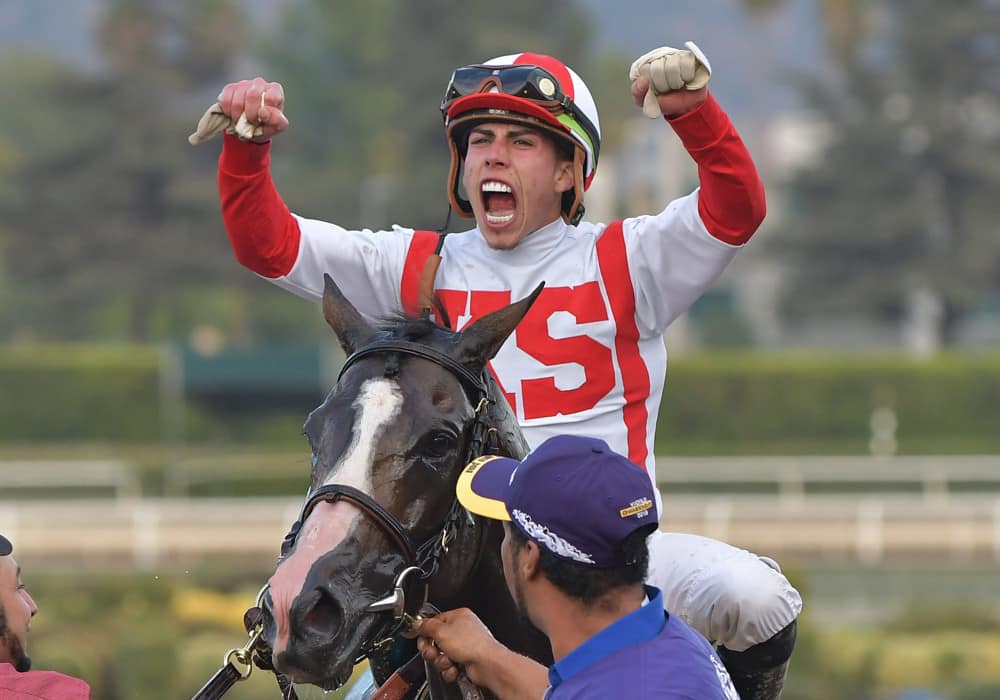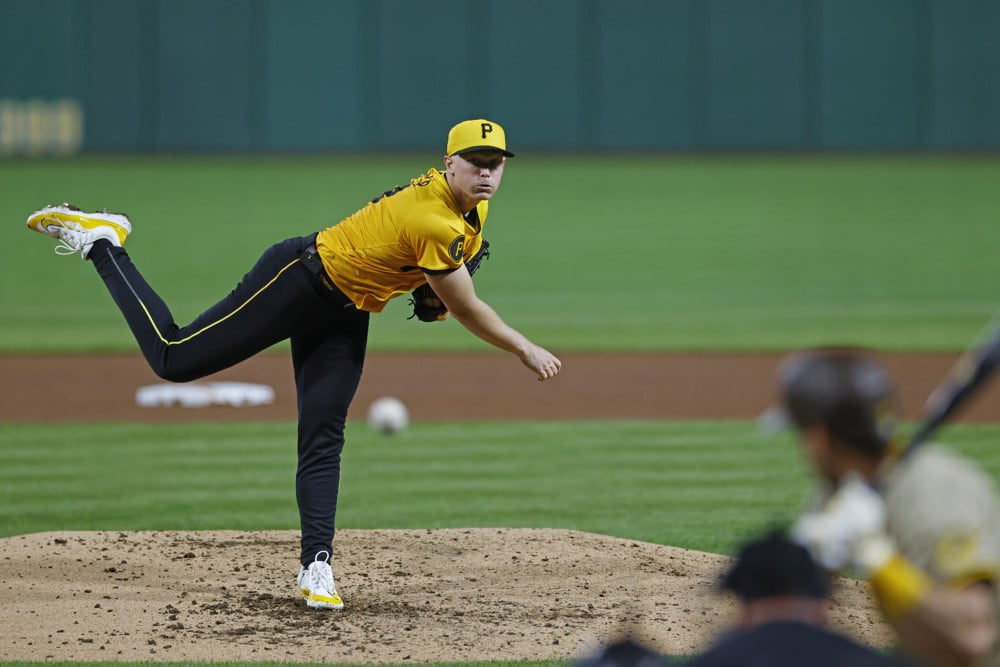Your handicapping sucks! Let’s make it better. Greetings and welcome to a new column here focusing on the Sport of Kings, horse racing and improving your handicapping skills. While the examples contained will be pertaining to horse racing, I think you’ll find parallels for almost every sport.
For example, a team blowing out the Bengals, struggles mightily against the Chiefs. Similarly, a horse walloping cheap claimers has no shot against graded stakes company. This is an example of a term in horse racing we call CLASS. Let’s first dive in to the factors comprising class and see if we can’t unearth some winners this weekend using class as a factor.
CLASS IS IN SESSION
Firstly, CLASS is not tangible. There is nothing you can point to on a horse physically indicating class. Unlike time, there is no absolute measure of class, however there are many unscientific figures that attempt to do so. Think of class as more of an overall rating in Madden, it doesn’t tell you what the player is good at, just that the player is good or not so good. Whereas the speedy wide receiver may not have good hands or jumping ability, the horse with good early speed may not have good stamina or heart. While the classier wide out will have speed, hands and jumping ability; similarly, the classier horse will be fast, for a longer period and will show heart in a ding dong battle for the win.
Since CLASS is an indeterminate value, what is even applicable when assigning a value to class? My general rule of thumb is any race won easily, by about three lengths can be considered that horse’s class. A horse winning and drawing off by five lengths, will most likely perform well against a class level above. A geared down, ten length score indicates perhaps greater intentions and a big class hike will be in order for the horse’s next start. Of course all of these are hypothetical scenarios and come with caveats. Such as if all the jockey’s fall off the other horses, I think we can agree that victory might be a bit tainted.
TYPES OF RACES ARE CALLED CONDITIONS
There are really only a few types of races, with many variations. Any horse who hasn’t won a race yet, is considered a maiden and run in maiden special weight races. A horse winning at least one race is eligible for many races, from claiming to allowance to stakes races. In a claiming race the horses in the race qualify by essentially being “for sale” for a certain amount specified by the conditions. An allowance race is for horses that aren’t up for sale, but are not quite stakes caliber. Stakes races are won by the best. There are also many shades in between with maiden claimers, maiden optional claimers, allowance optional claimers, starter optional claimers, starter allowance and even starter stakes. But let’s start with most common level of racing, claimers.
When determining appropriate CLASS levels for unrestricted claimers, my rule of thumb is a maiden claiming victory for twice today’s claiming price. In practical terms, horses entered in today’s $20,000 unrestricted, open claimer; meaning anyone is eligible to enter; would need to show a victory at a maiden claiming level twice that amount or $40,000. Now take my other rule of thumb of lengths won by and apply that and perhaps a victory over $32,000 maiden claimers by five or more lengths would be acceptable, certainly a victory of 10 lengths or more would be in strong consideration.
While in open claimers you’re looking for a maiden score at twice today’s claiming price, for conditioned claimers my rule of thumb is 1.5 times. A $12,500 condition claimer, would need a victory at a maiden claimer with around a $18,750 tag. So while no track I know of has ever carded a $18,750 maiden claimer, it would stand to reason a solid victory at $20,000 or an impressive performance at $16,000 would qualify as a quality win. You might ask, what is a conditioned claimer? Any claiming race with conditions for being in for the tag can be considered a conditioned claiming race.
POPULAR CONDITIONS
Some popular conditions include: non winners of two, non winners of three, non winners of four and so on. Meaning the horse simply doesn’t have that many wins under their belt in order to qualify. Non winners of a race in a time frame, include a year, six months or even a certain specific date. In instances of a specific date, scan the past performances for a win that falls just out of that range, typically it’s only a day! Chances are the racing secretary wrote those conditions for that horse specifically to qualify for the race. Finally, some race tracks card races for non winners at a certain distance, usually around a mile and typically with some time restriction, but not always.
In addition to using one condition to qualify for the race, many racetracks card bilateral conditioned claimers, meaning there are at least two conditions that a horse could use to qualify for entry. A popular bilateral condition you’ll see around the country this time of the year is non winners of four races or three year olds. Meaning any horse that hasn’t won four races in their life is eligible, but also any three year old is eligible, no matter how many victories they may have celebrated. Race tracks tend to get a little crazy with the cheese whiz the closer they get to the end of the meet, so be alert to more inventive conditions as the race meet progresses. Track secretaries are trying to write conditions for competitive races, while engaging the whole horse population stabled at their track.
ACTIONABLE INFORMATION
So how do we use this knowledge to cash tickets? There’s a particularly potent angle I love that will almost always get you price, I call the “pop and drop.” The ideal pop and drop candidate is a horse that has a proven victory for this level today, however in his last race, faced tougher, showed good early speed, but was challenged and faded, finishing off the board. I love it when they get beat 49 lengths. Today, he is facing his old buddies and will be emboldened by the fact he is dropping back in class. Perhaps the public will dismiss him based on his last performance, believing the horse to be out of form, but we know better.
So after that primer on class and a little on conditions, let’s try to find a winner this weekend using what we know…
This Saturday, July 4th at Los Alamitos Race Course at 6:58p EST; is the 7th race a 6 furlong dirt sprint for $12,500 claimers who have not won 2 races yet. My pick to win that race, using our pop and drop handicapping angle is the #5 Abusive Gary. Gary has a qualifying win on January 30th, for California-bred $50,000 maiden claimers, in which he drew off to score by eight and three-quarters lengths. Last out he showed good early speed going a mile, but just did not have enough kick to finish the job.
Today he cuts back in distance and gets a trainer change to excellent horseman, Vann Belvoir. Add to all that he gets a jockey switch from a struggling Evin Roman to the competent if unspectacular Edwin Maldonado. Abusive Gary looks to be the controlling speed of the race and should win going wire to wire, however, he has shown an ability to sit just off of the pace, should a duel develop in front of him. Oh and I forgot to mention, he is the CLASS of the field to boot. Class dismissed.























